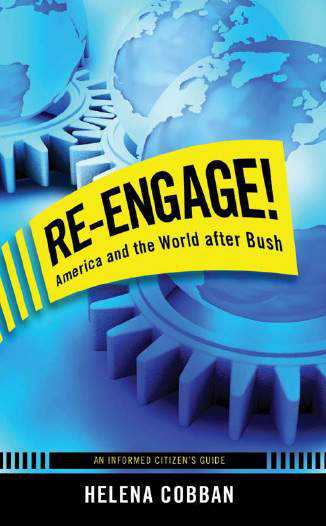OPINION
The West can learn a lot from Ankara’s perspective and democratic successes.
By Helena Cobban
 Adana, Turkey – As President Obama looks for partners in the Muslim world, he should consider listening to the government of Turkey as much as he listens to Egypt’s president. He could learn a lot from Turkey about how a smart Islamist party can be a valued participant in a democracy.
Adana, Turkey – As President Obama looks for partners in the Muslim world, he should consider listening to the government of Turkey as much as he listens to Egypt’s president. He could learn a lot from Turkey about how a smart Islamist party can be a valued participant in a democracy.
Turkey, a NATO ally, has been ruled since 2002 by a moderate Islamist party – the Justice and Development Party (AKP) – that has proved its commitment to democracy and pluralism at home and to an active, nearly always nonviolent, engagement in diplomacy abroad. And that’s why the record of the AKP in Turkey is so compelling.
At home, after the party first won power, grass-roots supporters tried to leverage that victory to ban alcohol sales in some Turkish cities. The judiciary struck down those regulations – and the national government complied with the ruling.
Later, the national government tried to lift the country’s longstanding ban on admitting scarf-wearing women to universities or to jobs in government. Once again, the courts struck down the proposal. And once again, the government complied without a protest. (That, though the wives of both the prime minister and the president always wear head scarves in public.)
In 10 days of travel, in three Turkish cities and vast swaths of countryside, I saw Turkish women wearing clothes that ranged from skimpy Western dress topped by tumbling – sometimes bleached-blond – hairdos, to a stylish version of Muslim hijab that involves an elegantly tied head scarf over a mid-thigh tunic and jeans, to the baggy black coverup of the ultrapious.
Most Turkish women are near the middle of that spectrum, and in many places young women with and without head scarves mingle easily, chatting and laughing together.
Regarding domestic affairs, one professor in Istanbul told me, “If you’re a politically liberal Turk who cares about women’s rights, the rights of the Kurdish minority, and religious minorities here, you couldn’t find a better party than the AKP.” I heard versions of that voiced by several other strongly secular Turks.
Back in early April, Mr. Obama came to Turkey and delivered a first important address to the Muslim world. Turks seemed delighted that he had included their country on his first trip abroad as president, and nearly all appreciated the respectful way he addressed the concerns of Turks and other Muslims.
On June 4, he gave another major address to the Muslim world in Cairo. Egypt, like Turkey, is a historic center of Muslim life. But the Turkish government follows policies that are much more in line with Obama’s inclusive, diplomacy-focused approach to international affairs.
Turkey’s two AKP governments have maintained good ties with Europe and with all Turkey’s neighbors – including Greece, Iran, Georgia, Iraq, and Syria. In 2007-08, Ankara also undertook an important mediation effort between Israel and Syria.
But Ankara fell afoul of the Bush administration in Washington for a number of reasons. Most significantly, in 2003, Ankara – like many other NATO allies – strongly opposed the US invasion of Iraq, and it refused to allow Washington to launch part of the invasion from Turkey.
The Bush administration also objected to the good ties the AKP maintained with Syria and – after the hard-line faction won the Palestinian elections in 2006 – with Hamas.
While George W. Bush was president, he seemed to ascribe little value to the inclusive and generally de-escalatory policies the AKP government has pursued at home and in the broader Middle East. He preferred instead an approach to the Middle East that sharpened divisions between the two groups he defined as “moderates” and “extremists.”
In the former group were the notoriously anti-democratic governments of Egypt and Saudi Arabia. In the latter, any government or party that seemed to support Iran, regardless of whether – like Hamas and Lebanon’s Hezbollah – they might have proved their popular support in democratic elections.
Indeed, in the Bush years, Washington worked actively to overthrow both Hamas and Hezbollah, and maintained what one Bush White House official has described as “a state of quasi-war” with Syria.
Several Bush-era officials openly questioned whether the electoral victories of Hamas and Hezbollah actually “proved” that a party could be both dedicated to Islamist principles and democratic rule over the longer term. Turkey’s experience provides intriguing evidence that it can.
Obama should value Turkey’s views on regional affairs. He may not be ready yet to go along with all the advice he receives from the AKP government in Ankara. But Ankara has much valuable experience that it can share with its NATO ally.
Helena Cobban is a former Monitor correspondent. Her latest book is “Re-engage! America and the World after Bush.”
Source: www.csmonitor.com, June 12, 2009